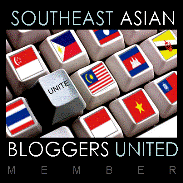The role of Filipinos in Saving the Phil. Economy
Slide from ofw_connect.com
The peso has strengthened against the dollar for the past days and affected us, the OFWs, and our families.
In my college days (I took up Economics major) we were taught that a strong peso means higher purchasing power, meaning, with a strong peso we should be able to buy more goods and services.
Usually, our class ended up in debates since we squabbled to prove some ‘economic laws’ are not considered laws, but only theories since they are sometimes proven to be not applicable in practice.
I am always guided by the teaching of Dr. Wadsworth, my American professor in college, that in order to have a perfect view of what needs to be done, the economic principle should be based on the existing practices and conditions, not on the economic laws and theories.
Theoretically, the devaluation of peso will be canceled out by an equivalent decrease in the prices of goods and services. This is where the equilibrium of the prices intertwined.
However the laws of economics do not seem to apply in the Philippines. The failure of the strong peso to provide better purchasing power has caused a double edged problem to the Overseas Filipinos and their families. While the peso appreciates, the prices of prime commodities continue to rise. When the dollar was pegged to P56.30 last year (this was the highest rate I was able to remit in my 8 years as an OFW), my family was overwhelmed that the $1000 I sent was a huge amount already. Last month, I sent the same amount, and I was so disappointed that in less than a year, the money that my family is receiving had lessen by almost P13,000.00
The problem becomes worst when Secretary Neri gave preference to provide a peso-dollar protection for the Filipino Exporters.
To him, OFWs remittances are getting higher due to better quality jobs they land into. He thinks that the remittances are getting higher because they get higher pay for better jobs. Neri sees the diminishing income of the export sector, he thinks that it is more important for government to provide a peso-dollar protection for the Filipino exporters because their peso earnings are getting smaller.
I wonder what could be the reason why it is too easy for a fellow economist (Neri) to belittle us Overseas Filipinos.
Is he aware that there are millions of Overseas Filipinos spread all over the globe?
A group of ‘concerned’ OFWs, rallied for non-remittance to the Philippines today, Nov. 1 until tomorrow. The email chain, originating from Dubai which flooded my email, urged Overseas Filipino not to remit their money thru the banks and find out how it will affect the financial condition of our country.
From Reg Cucal:
“Let us all heed to this call. It’s about time for us OFWs to move and do something to be heard. Mahirap kung puro lang tayo reklamo at hindi tayo kikilos.
Wag tayong magpadala sa mga Exchange centers tulad ng Al Ansari, UAE Exchange, Thomas Cook, etc. Magpadala tayo sa mga kilalang Door to Door companies tulad ng Sky Freight at GP Express.
Ipadama natin sa gubyerno ang ating pagkadismaya sa “ARTIFICIAL NA PAGLAKAS NG PESO”.
HUWAG MAGPADALA NG PERA SA NOVEMBER 1 & 2!!!
From Dick Orense of Abu Dhabi, UAE
Gawin natin itong isang sakripisyo para na rin sa ating kapakanan. Sabay-sabay po tayong di magpapadala sa Nov. 1 at Nov. 2. Puede rin po kayong gumamit ng “ RELIABLE” DOOR TO DOOR NA SERBISYO upang mabawasan ang dating ng dollar sa ating mga bangko sa Pinas at Central Bank. Marami raw ang dollars sa atin at sobra-sobra kaya ang BABA ng palit gawa ng IMPROVING ECONOMY SA ATING BANSA.
BAKIT PO KAYA PATAAS LAHAT NG BILIHIN AT DI NAMAN BUMABABA. PAMASAHE, BASIC COMMODITIES, ETC.?
For me, their suggestion is totally absurd! I respect their ideas, but mind you, it will not alarm the Arroyo government.
First, Nov. 1 and 2 are holidays and next 2 days (Sat. & Sunday) are non-working days and the banks are closed. Remittances usually reached our beneficiaries the following day, except for Western Union. Practically, why send money on these days when you know that the earliest your beneficiaries will receive your remittances is after 5 days (i.e. Monday Nov. 5)? Why float your money for several days where infact you can make it grow?
Second, why these advocators suggest some “reliable” door-to-door money services? What’s the distinction in their services? Note that many cases of money laundering, remittance manipulation and undocumented transactions are committed by some fly-by-night forwarders.
Third, the surplus dollar reserves in the Central Bank can pump-prime the market even for a week.
Fourth, assuming OFWs will not send their money on these days, and decide to send the following week, for sure, there will be pouring out of remittances resulting to strengthening the peso brusquely.
I received an email concerning a domestic helper’s views on how OFWs can work to uplift the Philippine economic situation. Ophel Belo is the 2007 valedictorian at the recently concluded graduation ceremonies of the Filipino Workers' Resource Center -Skills Training Program (FWRC-STP) in Kuala Lumpur. In her valedictory speech, she laid down the following:
FIRST, OFWs should not remit everything that they earn. They must save at least 50% and keep it until they go home for good.
SECOND, OFWs should take some reintegration courses that will help them when they go back home.
THIRD, OFWs should voice-out their opinions and ideas and be active in denouncing the abuses of political leaders.. They can write to congressmen, newspaper, and fellow OFWs.
FOURTH, Rally behind honest and hardworking officials and staff in government but denounce and expose and charge all those who violate their oaths as public servants.
FIFTH, get involve in community service organizations in your locality.
SIXTH, discipline our families at home. They should learn to value the remittances and not squander them in luxuries. Let them realize that we worked hard for the money and we should not tolerate extravagances.
SEVENTH, Be aware of all the economic, social and political developments in our country. Monitor what are the trends and programs of our country's future and share thoughts with those who spend remittances.
AND lastly number EIGHT, be aware that all that were, all that are and all that will be in the Philippines are driven by economic realities, high population growth, labor excess economy, cheap labor, globalization without safety nets, insufficient social services. All these are exacerbating the pains and sufferings of our people.
So, instead of proposing illogical short-term solution, let us, the OFWs, consider viable participation to save our economy.
I believed in the power of numbers and we have the strength in number that would make Malacanang tremble. At any point in time we can make or break a sitting President.

















No comments:
Post a Comment